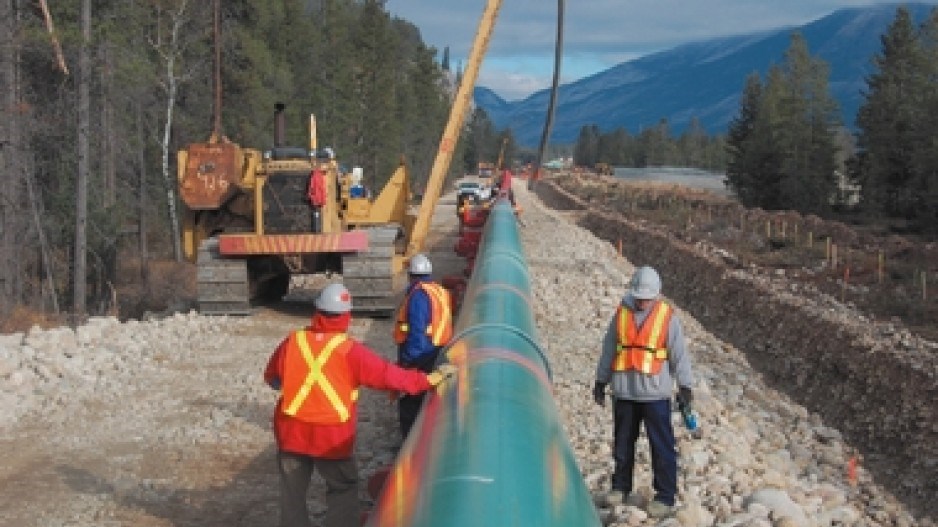Twinning the Trans Mountain pipeline, which Canadians now own, will cost $5 billion more than the last capital cost estimate, Trans Mountain president Ian Anderson confirmed this morning.
The expansion, last pegged in 2017 at $7.4 billion, will actually cost $12.6 billion, Anderson confirmed Friday, Feb. 7. That is $3.3 billion more than what the Parliamentary Budget Office estimated a one-year delay would cost.
In 2018, the Trudeau government salvaged the project when it agreed to buy it from Kinder Morgan for $4.5 billion. That price included the price for the existing pipeline, plus the $1 billion already spent or committed before the Federal Appeal Court of Canada halted the project.
When the Trudeau government bought the project, twinning it to nearly triple its capacity was estimated to cost $7.4 billion. Last year, the Parliamentary Budget Office estimated a year's delay could push that price of the expansion to $9.3 billion.
Anderson said the increased capital costs are the result of the starting and stopping the project, additional carrying costs, changed market conditions (the price of steel and labour, for example), and increased scope and design changes.
The delays were caused largely by the Federal Court of Appeal quashing the order in council that approved the project, which halted the project for a full year, as the federal government went back to the drawing board to address shortcomings in the approval process, including First Nation consultations.
"Time is money, as we all know," Anderson said. "Market conditions have changed. Circumstances have changed."
All along, the government's plan was to complete the expansion project and then sell it. A number of First Nations groups have said they want equity in the pipeline.
But the increased capital cost means a return on investment will take longer, which could cause potential buyers to balk at the new price tag. Potential buyers include a number of First Nations groups.
Chief Michael LeBourdais of the Whispering Pines First Nation, which is part of a group of First Nations that are seeking an equity position in the Trans Mountain project, told Business in Vancouver that he would be holding a conference call this morning with lenders and First Nations partners to discuss the implications of the new price tag on their bid for equity.
The increased capital costs also means shippers will have to pay higher tolls.
Anderson said he expects pipeline to be going into the ground in all spreads in B.C. and Alberta before the end of this year. To date, 3,000 people are working on the project, he said.
Anderson said a $500 million contingency has been added to the project's budget just to deal with further delays that might be caused by protests and other disruptions.
He said the B.C. government is cooperating in the issuing of permits. Anderson said the company now the expanded pipeline will be in service in late 2022.
To date, $2.5 billion has been spent on the expansion. So another $8.4 billion will still need to be spent. Financial carrying costs alone, which includes interest on borrowing, now accounts for $1.7 billion.


